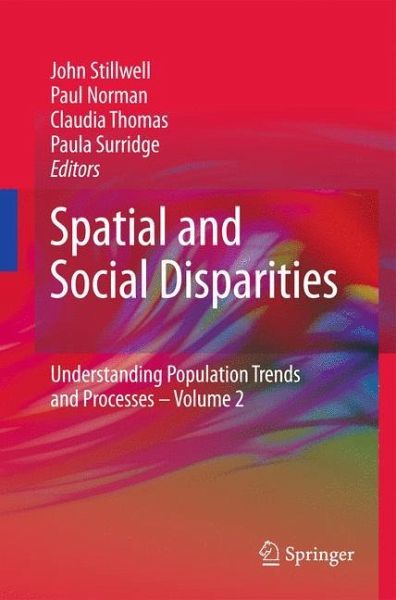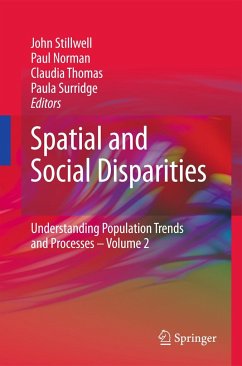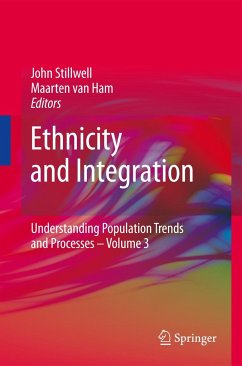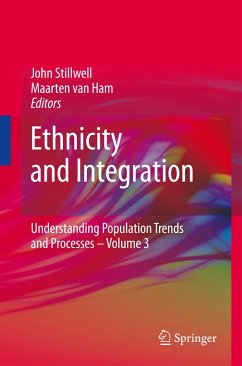
Spatial and Social Disparities
Versandkostenfrei!
Versandfertig in 6-10 Tagen
76,99 €
inkl. MwSt.

PAYBACK Punkte
38 °P sammeln!
Inequality is one of the major problems of the contemporary world. Significant geographical disparities exist within nations of the developed world, as well as between these countries and those referred to as the 'South' in the Bruntland Report. Issues of equity and deprivation must be addressed in view of sustainable development. However, before policymakers can remove the obstacles to a fairer world, it is essential to understand the nature of inequality, both in terms of its spatial and socio-demographic characteristics.This second volume in the series contains population studies that exami...
Inequality is one of the major problems of the contemporary world. Significant geographical disparities exist within nations of the developed world, as well as between these countries and those referred to as the 'South' in the Bruntland Report. Issues of equity and deprivation must be addressed in view of sustainable development. However, before policymakers can remove the obstacles to a fairer world, it is essential to understand the nature of inequality, both in terms of its spatial and socio-demographic characteristics.
This second volume in the series contains population studies that examine the disparities evident across geographical space in the UK and between different individuals or groups. Topics include demographic and social change, deprivation, happiness, cultural consumption, ethnicity, gender, employment, health, religion, education and social values. These topics and the relationships between them are explored using secondary data from censuses, surveysor administrative records.
In volume 1 the findings of research on fertility, living arrangements, care and mobility are examined. Volume 3 will focus on ethnicity and integration.
This second volume in the series contains population studies that examine the disparities evident across geographical space in the UK and between different individuals or groups. Topics include demographic and social change, deprivation, happiness, cultural consumption, ethnicity, gender, employment, health, religion, education and social values. These topics and the relationships between them are explored using secondary data from censuses, surveysor administrative records.
In volume 1 the findings of research on fertility, living arrangements, care and mobility are examined. Volume 3 will focus on ethnicity and integration.












